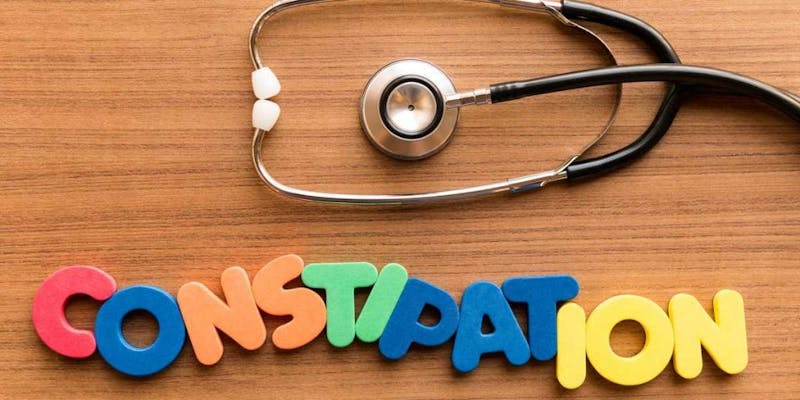
Decreased food intake, difficulty on drinking adequate amounts of fluids, and iron & calcium supplementation can reduce frequency in bowel movements. Is there something you can do?
First, you would need to assess if there is a medical condition that is somehow impeding the proper function of the gut. The GI tract, from the esophagus to “down there”, has different types of tissues which have different motility activities, each affected by the stimulus of the nerves to being physically active to the type of food you eat.
Constipation may be due to low fiber, liquid and food intake, and inactivity. It is very common while on the pre-op and the immediate post-op since there is not enough bulk at the gut to promote bowel movements. Increased physical activity, fluid and fiber intake are necessary to alleviate constipation. If these do not provide relief, you may need to take a stool softener or laxative such as milk of magnesia.
Reduced bowel movements may be very uncomfortable, follow these simple guidelines to PREVENT constipation
· Before surgery, make sure to include some fiber, and enough fluids.
· Bowel movements on a liquid diet are not usually regular. Right after surgery sip water all day long! continue sipping and make it a lifetime habit. You should be drinking a minimum of 32 oz at the early stages, aim for 64 oz daily.
· Introduce your iron and calcium supplementation gradually; remember to take them 2 hours apart for better absorption. You may stop taking your supplements for a brief period of time until your bowel movements are restored. If your multivitamin includes iron, you may stop taking it temporarily until constipation resolves. Bariatric calcium should be in the form of citrate calcium to prevent constipation.
· Probiotics help promote gut function. Include probiotics from natural sources as plain yogurt or fermented foods and from supplements.
· Begin taking supplemental fiber (gradually, once tolerated after surgery) as part of your daily routine.
· Avoid diuretics such as caffeine, included not only in coffee but sodas and some teas too.
· Some medicines like pain medication can slow bowel function, consult your physician before making changes in medication.
· Move! Walking and exercise promote motility at the gut.
If the pipes get clogged, follow these recommendations for CONSTIPATION relief
· Drink plenty of water (48-64 oz/day). Sip continuously.
· Add prune juice to your protein shakes. Or, blend in one pitted prune into your protein shake.
· Increase fiber intake from fruits and vegetables, follow food or liquid texture guidelines as described at each stage. Once at the solid stage, fruit and vegetables should be the main sources of fiber.
· Fiber supplements mixed with water are usually safe and can be effective. You may include fiber like Metamucil, Fibercon, Benefiber, Colon cleanse, PGX or Citrucel.
· Walking and staying active helps restore bowel movements. Increase your physical activity!
· “Smooth move” tea also helps. You can let it get cold and use it as the liquid base for your protein shake.
· Avoid diuretics such as caffeine (found in sodas, chocolate, and some herbal teas).
· Avoid drinking alcohol. Especially during recovery!
· Some nutritional supplements, including calcium and iron, may contribute to constipation; you may stop taking your supplements for a brief period of time until your bowel movements are restored. Talk to your surgeon about taking a stool softener or laxative. Milk of magnesia has been a good option for immediate relief to our patients.
· Narcotics (pain medication) can slow bowel function resulting in constipation. Be sure to consult your physician in regards to medication and constipation.
· If you have a magnesium deficiency, hypothyroidism or a sluggish thyroid you may benefit from taking Citrate Magnesium, start with 400 mg and if BM is not restored, increase to 600 mg.
· Taking digestive enzymes help digest food and promote digestive functions.
Your intestines, especially your large bowel, are structured to handle a significant amount of bulk in your diet. The simple fact is that your little pouch will not let you consume enough bulk from food to ensure optimum function over time, possibly leading to chronic constipation. Make sure to take control by following these guidelines, it is doable and your gut will appreciate it.

